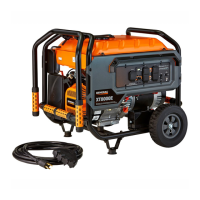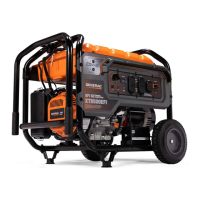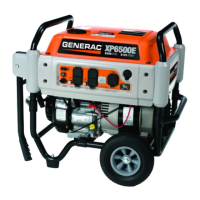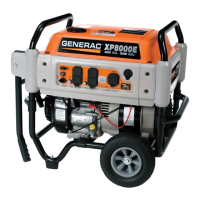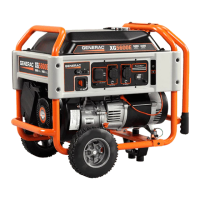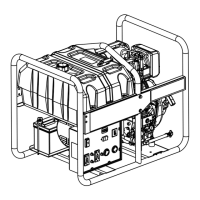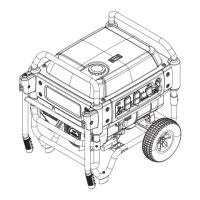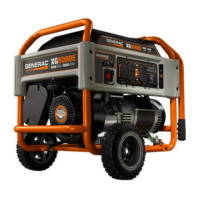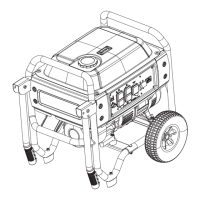Section 5 Engine Diagnostic Tests
Diagnostic Repair Manual 29
4. Broken, damaged or weak magnets.
5. Starter drive dirty or binding.
Figure 5-6. Starter Motor (SM)
Procedure
The battery should have been previously checked and
fully charged.
Set a DMM to measure DC voltage (12 VDC). Connect
meter positive (+) test lead to starter contactor stud (the
small jumper wire connected to starter). Connect
common (-) test lead to starter motor frame.
Set Start-Stop Switch to START and observe meter.
Meter should indicate battery voltage. Starter motor
should operate and engine should crank.
Results
1. If battery voltage is indicated on meter but motor
did NOT operate, remove and test starter motor for
proper operation independent of engine.
2. If battery voltage was indicated and Starter Motor
tried to engage (pinion engaged) but engine did not
crank, check for mechanical binding of engine or
rotor.
NOTE: If a starting problem is encountered, the engine
itself should be thoroughly checked to eliminate it as the
cause of starting difficulty. It is good practice to check
engine for freedom of rotation by removing spark plugs
and turning crankshaft over slowly by hand to be sure it
rotates freely.
IMPORTANT NOTE: Do not rotate engine with electric
starter with spark plugs removed. Arcing at the spark
plug ends may ignite the gasoline vapor exiting the spark
plug hole.
Checking The Pinion
See Figure 5-7. When starter motor is activated, the
pinion gear should move and engage flywheel ring gear.
If pinion does not move normally, inspect pinion for
binding or sticking.
Figure 5-7. Check Pinion Gear Operation
Test 20 – Check Ignition Spark
Procedure
A commercially available spark tester may be used to
test engine ignition system. One can also be purchased
from Generac or local supplier.
Figure 5-8. Spark Tester
1. Disconnect spark plug lead from spark plug.
2. Attach high tension lead to spark tester terminal.
3. See Figure 5-9 and Figure 5-10. Ground spark
tester clamp by attaching to cylinder head.
4. Crank engine rapidly. Engine must crank at 350
rpm or more. If spark jumps tester gap, assume the
ignition system is working properly. Repeat on
remaining cylinder spark plug.
Figure 5-9. Testing Ignition System
(000143)
DANGER
Explosion and Fire. Fuel and vapors are extremely
flammable and explosive. Store fuel in a well
ventilated area. Keep fire and spark away. Failure
to do so will result in death or serious injury.
WARNING
Explosion. Turn fuel supply OFF before
checking for spark. Failure to do so could
result in death or severe injury.
(000333)
